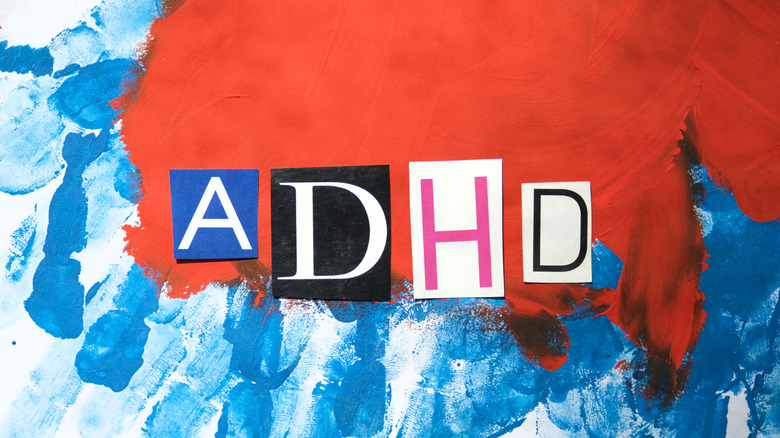Michael Phelps' ADHD Diagnosis Explained
Michael Phelps is an Olympic swimmer who holds the world record for winning the most Olympic medals (via Sports Illustrated). He's also joined the ranks of athletes and celebrities who are opening up about their own struggles with mental illness to help destigmatize and bring awareness to mental health disorders. In a video for the Child Mind Institute's Speak Up for Kids campaign, Phelps revealed that he has attention deficit hyperactivity disorder (ADHD).
In the video, the gold medalist explained that he's had ADHD his "entire life" and it's something that he still continues to live with to this day. "Growing up, I was someone who was constantly bouncing off the walls — I could never sit still," Phelps said. Since then, however, he has found a way to manage and cope with his condition. "Once I found that it was okay to talk to someone and seek help, I think that's something that has changed my life forever," he added. "Now I'm able to live life to its fullest."
What is ADHD?
ADHD is a disorder characterized by hyperactivity, impulse behaviors, and inattentiveness, according to Healthline. Many people with ADHD have trouble focusing or sitting still for extended periods of time and often experience changes in energy levels. ADHD can affect both children and adults and can range in severity. Common symptoms of ADHD include difficulty concentrating or completing tasks, forgetfulness, being easily distracted, and interrupting others while they're talking.
There are three main types of ADHD: predominantly inattentive, predominantly hyperactive-impulsive, and combined hyperactive-impulsive and inattentive. The most common type is the combined hyperactive-impulsive and inattentive type. People with this type of ADHD exhibit hyperactive, impulsive, and inattentive behaviors. Meanwhile, people with predominantly inattentive type mostly exhibit inattentive behaviors, and people with predominantly hyperactive-impulsive type exhibit both hyperactive and impulsive behaviors. Regardless of the type, however, ADHD can be managed and treated with therapy, medications, and even diet and lifestyle changes.


